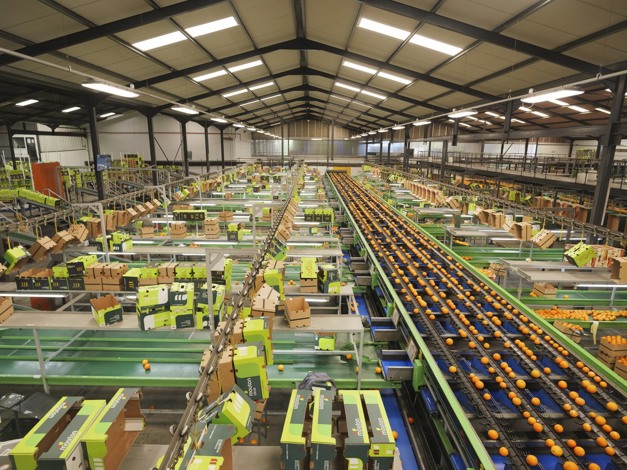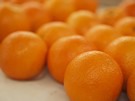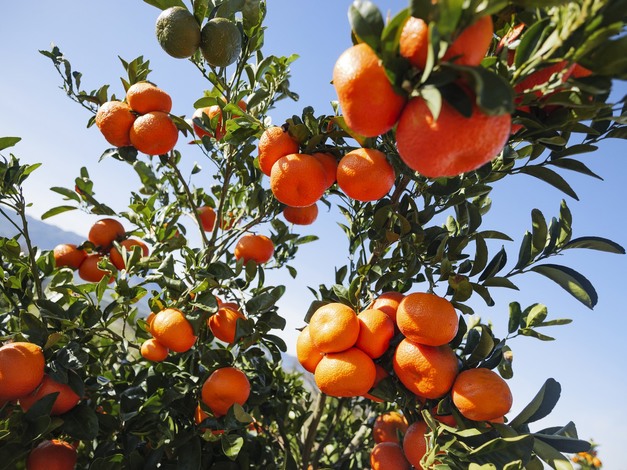Back in April of this year, Suhanra Conradie with Summer Citrus from South Africa estimated South Africa would export +/- 100,000 pallets of citrus to the US this season. “Year-to-date, we are at 99 percent of our initial estimates,” she says. “During the pre-planning season, we always put a lot of effort into these numbers, and I believe that is one of our strengths.” The numbers are shared with all service providers throughout the supply chain, both in South Africa and the US, including exporters, logistics suppliers, cold stores, shipping lines, bilateral entities, US importers, ports in South Africa and the US, etc. and updated on a weekly basis during the season.

By the end of week 31, 70 percent of the planned program has been packed and almost 60 percent of product has been shipped. “The balance is already in the pipeline,” Conradie commented. Conventional vessels and container vessels arrive into the Port of Philadelphia on a weekly basis, and it looks like a total of nine or ten conventional vessels will make it into the Port of Philadelphia this season. “At the moment, we are busy loading the biggest container vessel our group has ever loaded, the MSC Mattina, which will carry +/- 250 containers” Conradie shared. Altogether, there will be a 50-50 volume split between conventional and container vessels into Philadelphia. “The container program nicely complements our dedicated conventional vessels into the US,” she added. In addition, some containers are also shipped into Savannah, GA as well as New York during the early part of the season.
Oranges and Easy Peelers The citrus fruit basket from South Africa to the US consists of oranges (46 percent) and Easy Peelers (47 percent) with Star Ruby grapefruit making up the balance. Within the orange category, Navels are the large majority, followed by Midknights and a little bit of Cara Caras. In the next two to three weeks, the last Navels of the season will be packed and production of Midknights will start shortly after that. Easy Peelers will be packed through September and consist of the later mandarin varieties, from now until the end of the season. “We expect final volumes on Easy Peelers to be slightly lower than initially estimated. However, numbers continue to be updated as these are the peak mandarin weeks,” said Conradie.
The citrus fruit basket from South Africa to the US consists of oranges (46 percent) and Easy Peelers (47 percent) with Star Ruby grapefruit making up the balance. Within the orange category, Navels are the large majority, followed by Midknights and a little bit of Cara Caras. In the next two to three weeks, the last Navels of the season will be packed and production of Midknights will start shortly after that. Easy Peelers will be packed through September and consist of the later mandarin varieties, from now until the end of the season. “We expect final volumes on Easy Peelers to be slightly lower than initially estimated. However, numbers continue to be updated as these are the peak mandarin weeks,” said Conradie.
Rainfall and taxi strikes
While YTD citrus shipments are at 99 percent of the preliminary forecast, the season hasn’t gone without challenges. During the first and second week of June, excessive rainfall impacted productivity and some aspects throughout the supply chain. “We are seeing a similar impact as a result of taxi strikes that are taking place in the Western Cape.” As a result, people can’t get to work, which is impacting the productivity of service providers, including cold storage and loading of the vessels. “For about two to three days, we operated at 70 to 80 percent of our loading goals.” Nevertheless, Conradie remains optimistic about the season. “South Africa has established itself as a reliable supplier of premium quality citrus, which is being emphasized by all US importers. It’s something we are very proud of. Our transparent and real-time communication and the fact that we communicate quickly to the trade is key for executing this program with excellence”.

For more information:
Suhanra Conradie
Summer Citrus from South Africa
[email protected]
www.summercitrus.com
